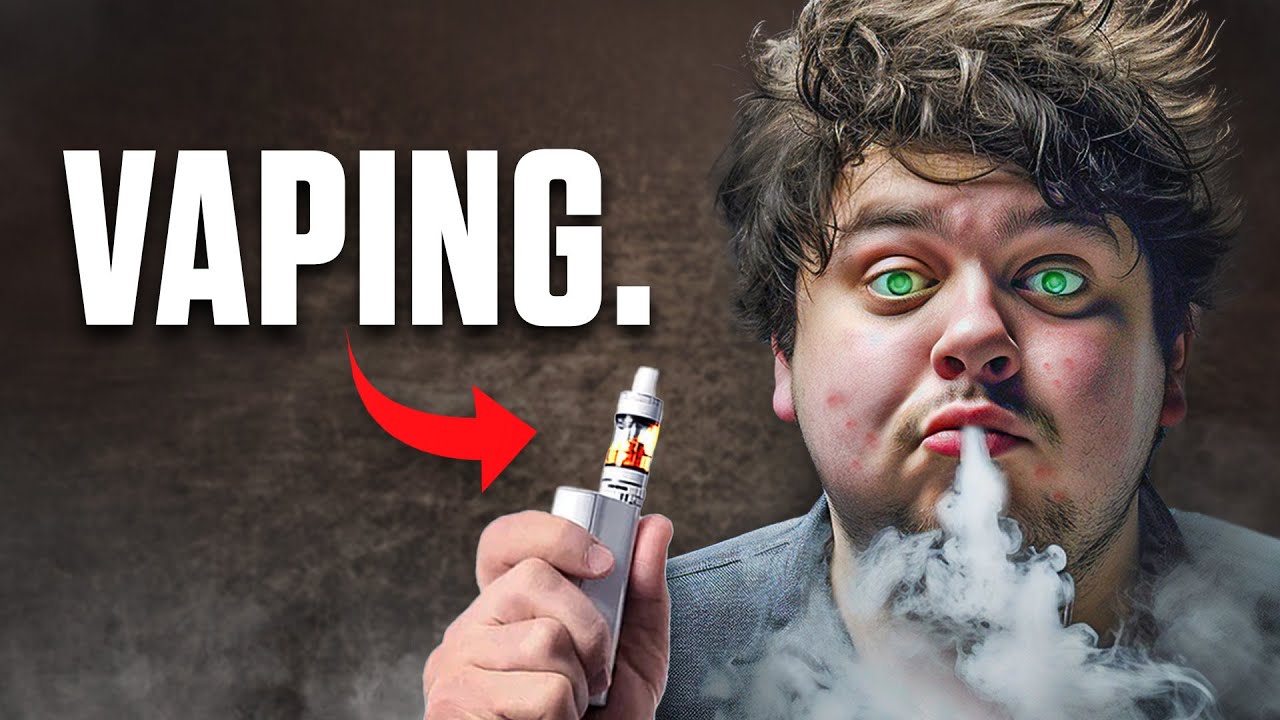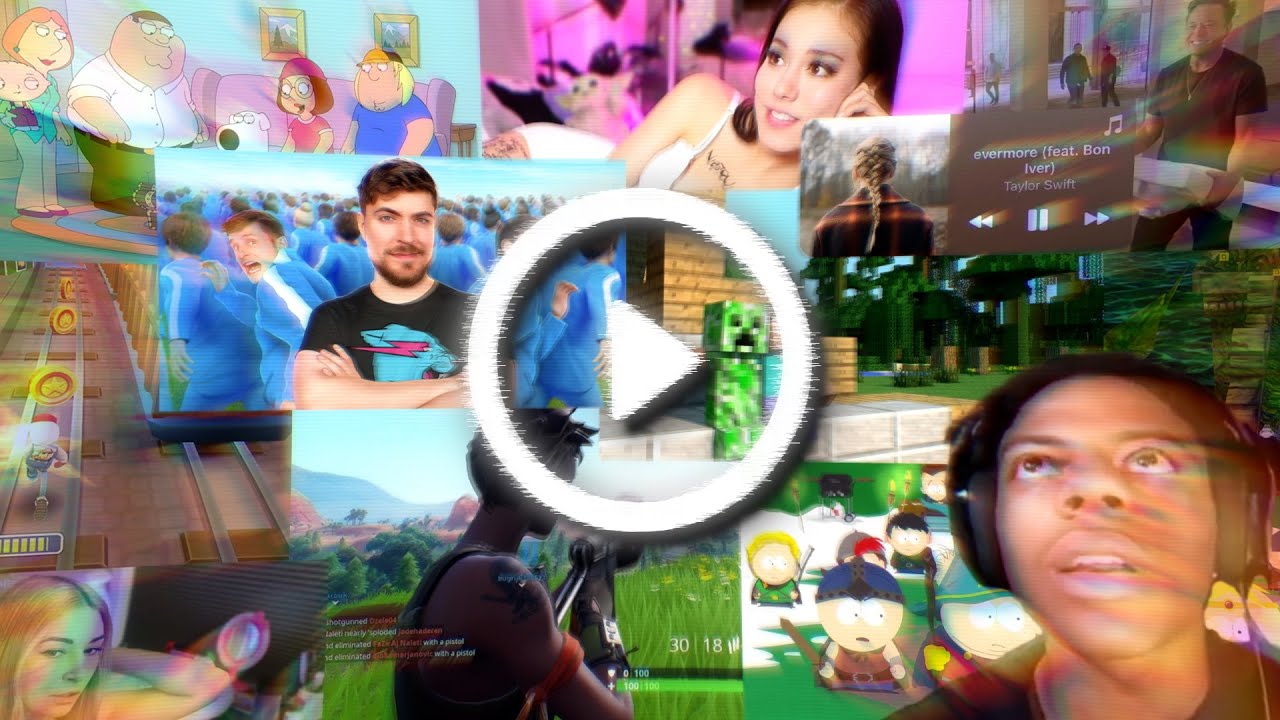
The internet has dramatically reshaped how we access and consume information in recent years. While it’s brought countless benefits—like connecting us to endless streams of knowledge and facilitating global communication—it’s also had a darker side effect: erasing our critical thinking skills. This isn’t just a minor inconvenience; it’s a profound shift changing how we think, make decisions, and interact with the world.

The Decline in Critical Thinking
You’ve probably noticed it in everyday conversations or seen it play out on social media platforms. People seem quick to accept information at face value without much scrutiny. This isn’t surprising when you consider the sheer volume of content we’re bombarded with daily. The internet offers an overwhelming amount of information, yet much of it is geared toward being easily consumable rather than intellectually challenging.
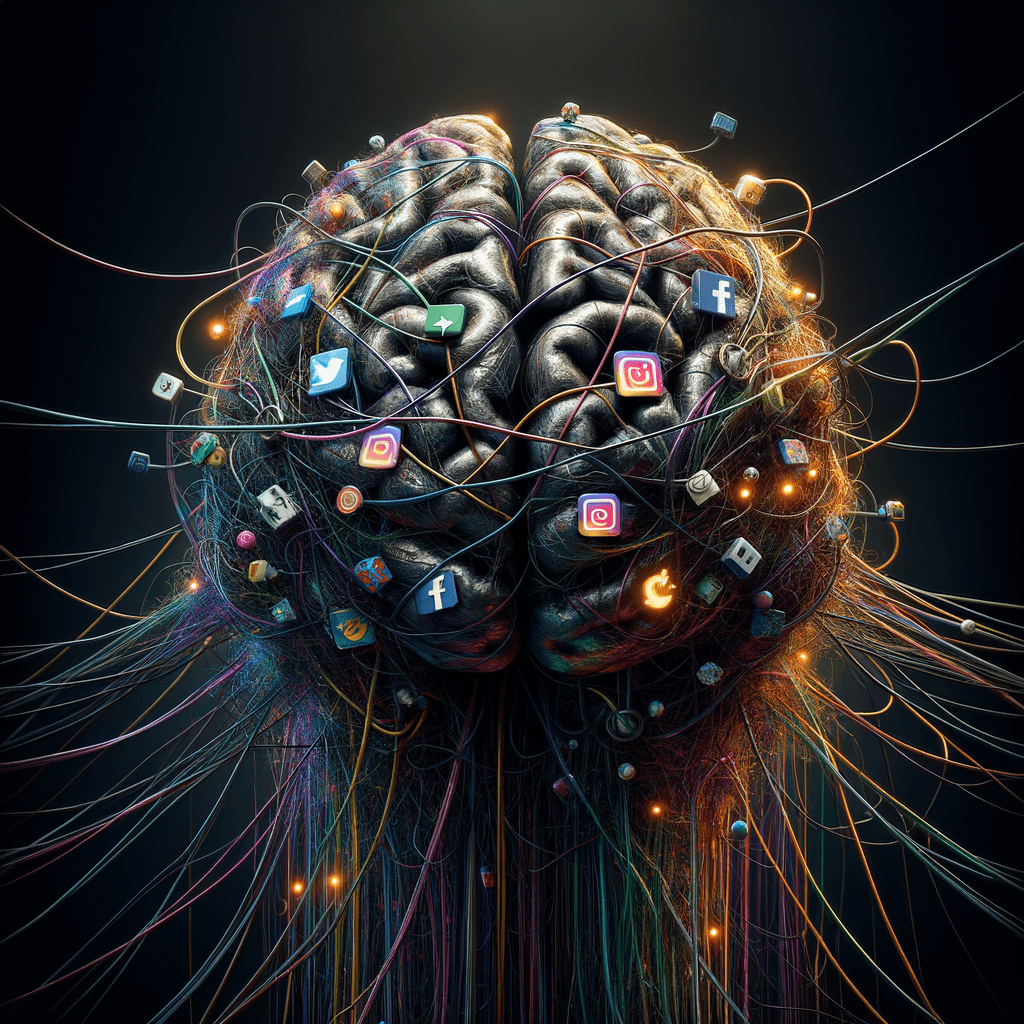
Take a moment to think about your daily routine. How often do you scroll through Twitter, Facebook, or Instagram? You likely come across dozens, if not hundreds, of posts in just a few minutes. Each post demands a fraction of your attention, and most are designed to be digested quickly. Whether it’s a catchy meme, a short video, or a brief news headline, the content is often simplified to capture your interest immediately.

For example, consider the last time you read a news article on your phone. Did you read it from start to finish, or did you skim through the headlines and a few key points? Chances are, you opted for the latter. This habit of skimming can lead to superficial understanding, where you grasp the gist of the topic but miss the deeper nuances. It’s like reading the summary of a book instead of engaging with the full text—you get the main idea but not the rich detail that fosters critical thinking.

Similarly, think about how you consume news on social media. Platforms like Facebook and Twitter prioritize content with high engagement—posts that are liked, shared and commented on frequently. This often means sensational headlines and emotionally charged content rise to the top while more thoughtful, analytical pieces are buried. For instance, a tweet claiming a celebrity scandal will garner thousands of likes and retweets, overshadowing a well-researched piece on economic policy that might significantly impact your life.

Moreover, the speed at which we consume information has increased dramatically. You might watch a 30-second TikTok video summarizing a complex issue, but this doesn’t replace the depth of understanding you’d gain from reading a detailed report or book. Quick consumption habits make it difficult to digest and reflect on information fully, which is a key component of critical thinking.
![]()
The internet has transformed our brains, making us worse at critical reasoning and focusing. Studies have shown that people constantly connected to the internet have shorter attention spans. They switch between tasks more frequently, which hampers their ability to concentrate on one thing for an extended period. For instance, you might find it hard to read a book for an hour without checking your phone multiple times. This fragmented attention makes deep, critical analysis nearly impossible.

Consider your own experiences. Have you ever started reading an in-depth article only to be distracted by a notification on your phone? Maybe you intended to spend 20 minutes reading but hopped between different apps and websites. This constant distraction prevents you from engaging deeply with information, eroding your critical thinking skills.
Echo Chambers and Confirmation Bias
One major issue is the creation of echo chambers. These are online spaces where people only encounter information that reinforces their existing beliefs. For instance, if you’re already inclined to believe in certain political ideologies, social media algorithms will primarily show you content that aligns with those views. This creates a feedback loop that strengthens your biases and discourages you from considering alternative perspectives. It’s like living in a bubble where your thoughts and opinions are constantly validated, leaving little room for critical analysis.
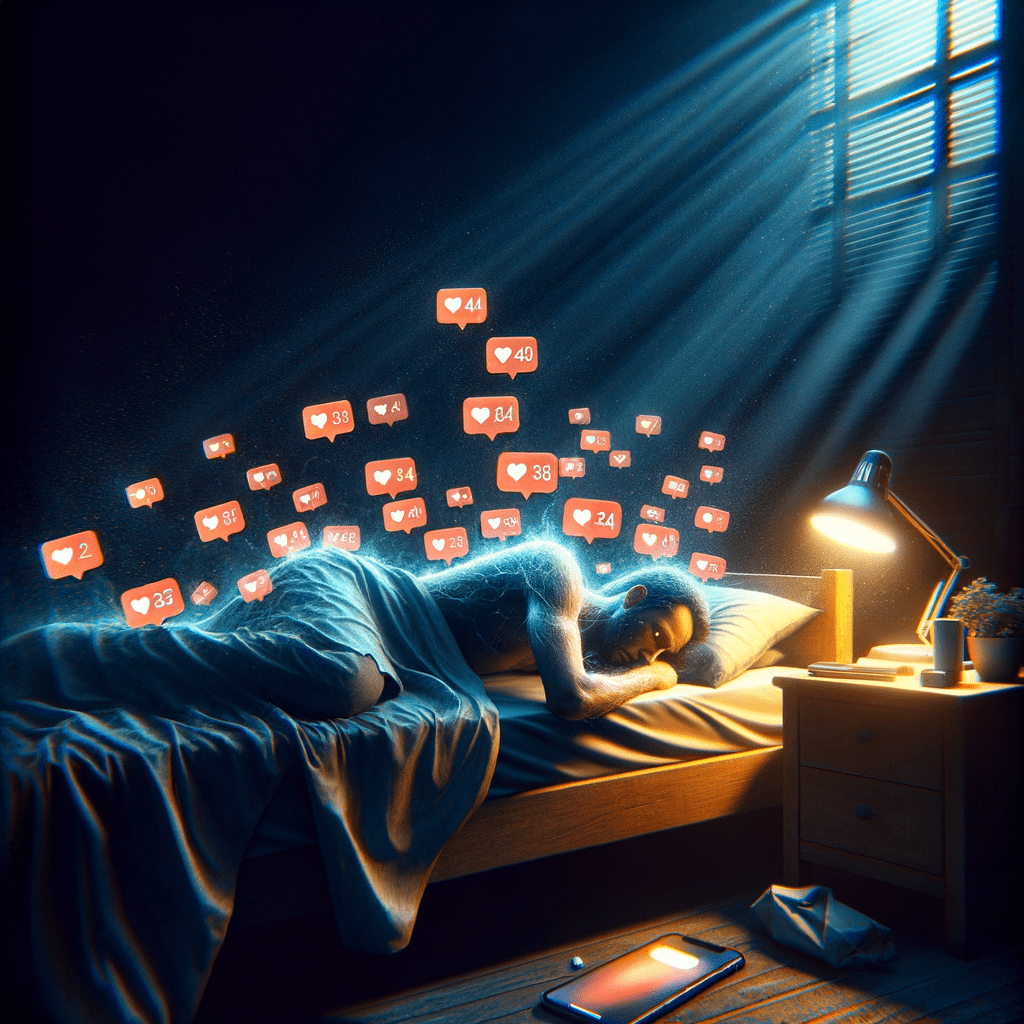
The Role of Algorithms
Algorithms play a massive role in this phenomenon. They’re designed to keep you engaged by showing content that elicits strong emotional reactions. Sensational headlines, emotionally charged posts, and controversial topics are prioritized because they drive more clicks, comments, and shares. For example, a headline screaming about a scandal will likely get more attention than a nuanced, well-researched article. Over time, this skews our perception of reality, making distinguishing between what’s important and merely clickbait harder.

Examples in Everyday Life
Let’s bring this down to a more personal level. Imagine scrolling through your social media feed and coming across a post claiming that a particular food ingredient is harmful. The post is shared by a friend, and it has thousands of likes and shares. Without thinking critically, you might start avoiding that ingredient, even though there’s no scientific evidence to support the claim. This is a simple example, but it illustrates how easily misinformation can spread and influence behavior.
Misinformation About Health Trends
Consider another relatable scenario: the rise of health trends and fads on social media. You might come across a video promoting a new diet that promises rapid weight loss without any exercise. This video has millions of views and glowing testimonials from influencers. However, many of these diets are not backed by scientific research and can sometimes be harmful. Despite this, people often follow these trends because they are endorsed by popular figures who seem trustworthy.
For example, the ketogenic diet gained massive popularity after being promoted by celebrities and influencers. While keto can be effective for some people, it’s not suitable for everyone, especially those with certain medical conditions. However, without proper critical thinking, individuals might adopt this diet without consulting a healthcare professional, potentially facing adverse health effects.
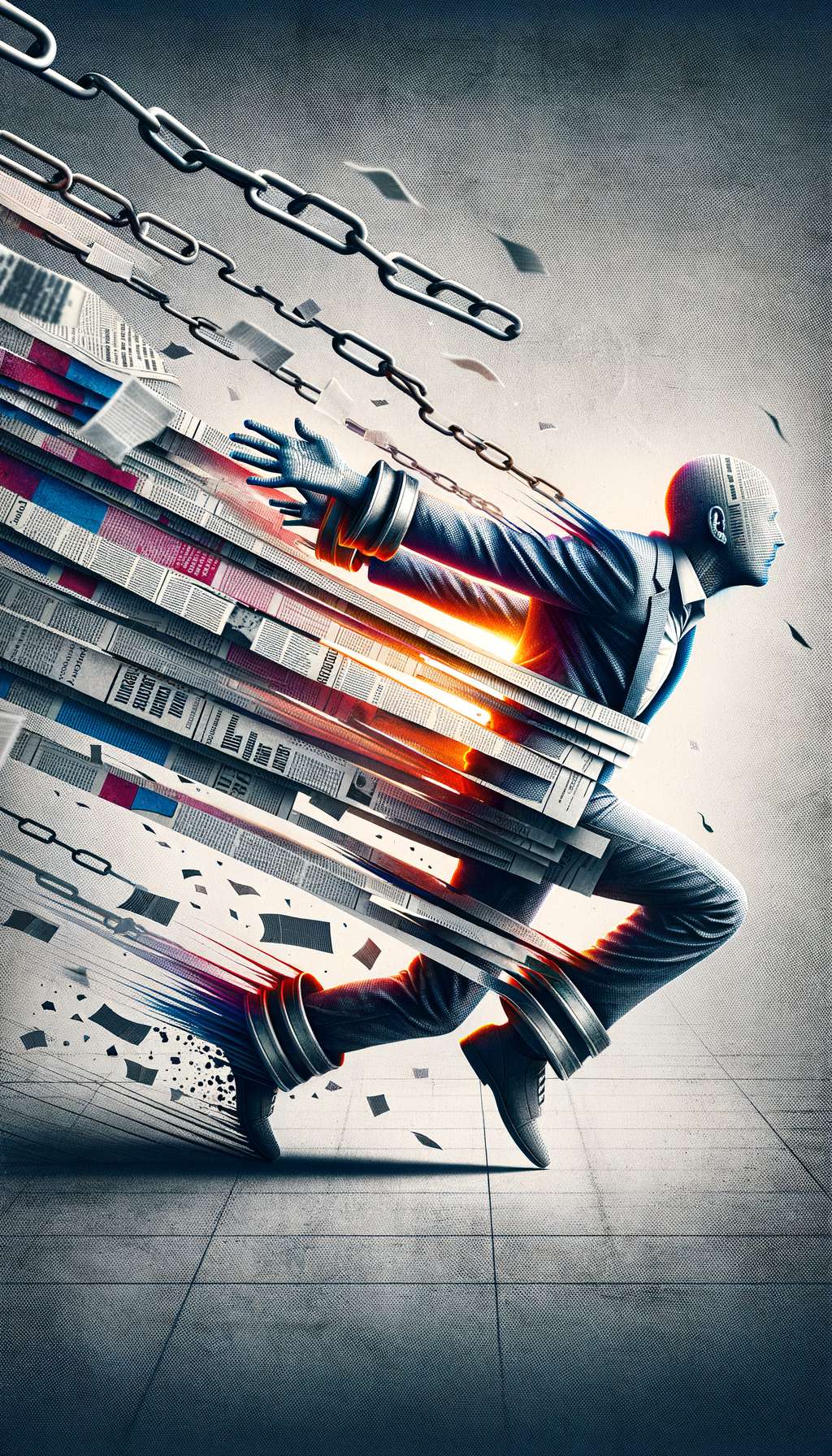
Breaking free from the chains of conformity, he embarks on a journey of self-discovery and freedom. Embrace the courage to be yourself.
Viral Challenges and Dangerous Behavior
Another common example is the viral challenges that spread across platforms like TikTok and Instagram. Some of these challenges are harmless fun, but others can be dangerous. For instance, the “Tide Pod Challenge” encouraged teenagers to bite into laundry detergent pods, leading to numerous cases of poisoning and emergency room visits. People participated in this challenge largely due to peer pressure and the desire for online fame without critically assessing the risks involved.
Political Misinformation
Political misinformation is another area where critical thinking is crucial. Social media is flooded with posts, memes, and videos making various claims about candidates during election seasons. Some of these are outright falsehoods designed to sway public opinion. For instance, a viral post might falsely claim that a candidate supports a controversial policy, prompting people to share the information without verifying its accuracy. This can lead to widespread misconceptions and impact voting decisions.
To learn more about this, read ‘You Are Not Immune To Propaganda.’
Online Reviews and Consumer Decisions
Think about how you make purchasing decisions online. Platforms like Amazon and Yelp are filled with reviews that can influence what you buy. However, not all reviews are genuine. Companies sometimes pay for positive reviews or to discredit their competitors. Without critical thinking, you might end up buying a product based on manipulated feedback. For example, you might purchase a gadget with stellar reviews only to find it doesn’t work as advertised because the positive reviews are fake.
News Consumption
Lastly, consider how you consume news. With so many online news sources, it’s easy to gravitate towards those that align with your beliefs. This creates an echo chamber effect, repeatedly exposing you to the same viewpoints without considering alternative perspectives. For instance, if you primarily read news from one political viewpoint, you might miss out on important stories covered by outlets with different viewpoints. This limits your understanding of complex issues and reinforces bias.
Read ‘Is Society Collapsing?‘ to understand the myths behind the collapse of our society.
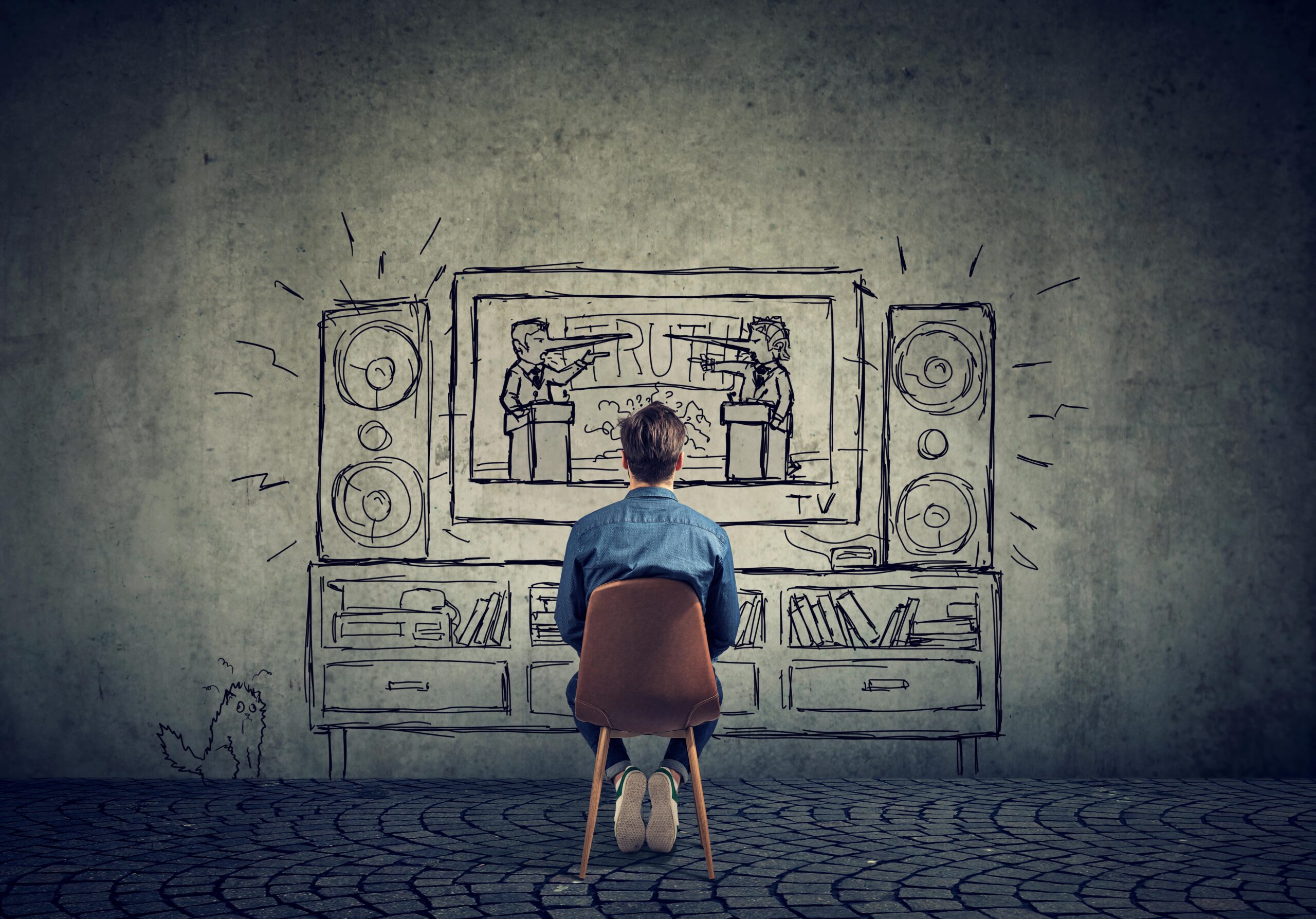
Impact on Children and Teenagers
The impact on children and teenagers is particularly concerning. Many young people get their news and information exclusively from social media. They might follow influencers who spread misinformation or engage in harmful behaviors without questioning the validity of the content. For example, during the COVID-19 pandemic, there was a significant amount of misinformation about the virus and vaccines circulating on platforms like Instagram and TikTok. Young people who relied on these platforms for information were more susceptible to believing and spreading false claims.
Reading Comprehension and Attention Spans
Another area affected by internet usage is reading comprehension and attention spans. We’re all guilty of skimming through articles or jumping from one tab to another without fully digesting the content. This habit reduces our ability to engage deeply with material and think analytically about what we’re reading. Consider how often you’ve read an entire book compared to the number of times you’ve skimmed through headlines or short articles. The difference is stark.

Societal Polarization
The internet’s role in societal polarization cannot be overstated. Mainstream media and social media platforms often perpetuate divisive narratives to drive engagement. This creates an environment where people are less likely to engage in constructive dialogue and more likely to retreat into their ideological corners. Think about the last major political event—chances are, you saw heated debates and name-calling rather than thoughtful discussions.
Maintaining Independent Thought
So, what can we do to combat these trends? It starts with being more mindful of how we consume information. Instead of passively scrolling through feeds and accepting everything at face value, take the time to verify sources and seek out diverse viewpoints. Engage with content that challenges your beliefs and encourages you to think critically. It is essential to limit screen time, especially for children, to ensure they develop healthy cognitive and social skills.
![]()
Conclusion
The internet has undoubtedly changed how we live, but it’s crucial to recognize its impact on our critical thinking abilities. By understanding the mechanisms at play and taking proactive steps to counteract them, we can preserve our capacity for independent thought in the digital age. After all, true intelligence lies not in the information we consume but in how we interpret and apply it.

The internet has dramatically reshaped how we access and consume information in recent years. While it’s brought countless benefits—like connecting us to endless streams of knowledge and facilitating global communication—it’s also had a darker side effect: erasing our critical thinking skills. This isn’t just a minor inconvenience; it’s a profound shift changing how we think, make decisions, and interact with the world.

The Decline in Critical Thinking
You’ve probably noticed it in everyday conversations or seen it play out on social media platforms. People seem quick to accept information at face value without much scrutiny. This isn’t surprising when you consider the sheer volume of content we’re bombarded with daily. The internet offers an overwhelming amount of information, yet much of it is geared toward being easily consumable rather than intellectually challenging.

Take a moment to think about your daily routine. How often do you scroll through Twitter, Facebook, or Instagram? You likely come across dozens, if not hundreds, of posts in just a few minutes. Each post demands a fraction of your attention, and most are designed to be digested quickly. Whether it’s a catchy meme, a short video, or a brief news headline, the content is often simplified to capture your interest immediately.

For example, consider the last time you read a news article on your phone. Did you read it from start to finish, or did you skim through the headlines and a few key points? Chances are, you opted for the latter. This habit of skimming can lead to superficial understanding, where you grasp the gist of the topic but miss the deeper nuances. It’s like reading the summary of a book instead of engaging with the full text—you get the main idea but not the rich detail that fosters critical thinking.

Similarly, think about how you consume news on social media. Platforms like Facebook and Twitter prioritize content with high engagement—posts that are liked, shared and commented on frequently. This often means sensational headlines and emotionally charged content rise to the top while more thoughtful, analytical pieces are buried. For instance, a tweet claiming a celebrity scandal will garner thousands of likes and retweets, overshadowing a well-researched piece on economic policy that might significantly impact your life.

Moreover, the speed at which we consume information has increased dramatically. You might watch a 30-second TikTok video summarizing a complex issue, but this doesn’t replace the depth of understanding you’d gain from reading a detailed report or book. Quick consumption habits make it difficult to digest and reflect on information fully, which is a key component of critical thinking.
![]()
The internet has transformed our brains, making us worse at critical reasoning and focusing. Studies have shown that people constantly connected to the internet have shorter attention spans. They switch between tasks more frequently, which hampers their ability to concentrate on one thing for an extended period. For instance, you might find it hard to read a book for an hour without checking your phone multiple times. This fragmented attention makes deep, critical analysis nearly impossible.

Consider your own experiences. Have you ever started reading an in-depth article only to be distracted by a notification on your phone? Maybe you intended to spend 20 minutes reading but hopped between different apps and websites. This constant distraction prevents you from engaging deeply with information, eroding your critical thinking skills.
Echo Chambers and Confirmation Bias
One major issue is the creation of echo chambers. These are online spaces where people only encounter information that reinforces their existing beliefs. For instance, if you’re already inclined to believe in certain political ideologies, social media algorithms will primarily show you content that aligns with those views. This creates a feedback loop that strengthens your biases and discourages you from considering alternative perspectives. It’s like living in a bubble where your thoughts and opinions are constantly validated, leaving little room for critical analysis.

The Role of Algorithms
Algorithms play a massive role in this phenomenon. They’re designed to keep you engaged by showing content that elicits strong emotional reactions. Sensational headlines, emotionally charged posts, and controversial topics are prioritized because they drive more clicks, comments, and shares. For example, a headline screaming about a scandal will likely get more attention than a nuanced, well-researched article. Over time, this skews our perception of reality, making distinguishing between what’s important and merely clickbait harder.

Examples in Everyday Life
Let’s bring this down to a more personal level. Imagine scrolling through your social media feed and coming across a post claiming that a particular food ingredient is harmful. The post is shared by a friend, and it has thousands of likes and shares. Without thinking critically, you might start avoiding that ingredient, even though there’s no scientific evidence to support the claim. This is a simple example, but it illustrates how easily misinformation can spread and influence behavior.
Misinformation About Health Trends
Consider another relatable scenario: the rise of health trends and fads on social media. You might come across a video promoting a new diet that promises rapid weight loss without any exercise. This video has millions of views and glowing testimonials from influencers. However, many of these diets are not backed by scientific research and can sometimes be harmful. Despite this, people often follow these trends because they are endorsed by popular figures who seem trustworthy.
For example, the ketogenic diet gained massive popularity after being promoted by celebrities and influencers. While keto can be effective for some people, it’s not suitable for everyone, especially those with certain medical conditions. However, without proper critical thinking, individuals might adopt this diet without consulting a healthcare professional, potentially facing adverse health effects.

Breaking free from the chains of conformity, he embarks on a journey of self-discovery and freedom. Embrace the courage to be yourself.
Viral Challenges and Dangerous Behavior
Another common example is the viral challenges that spread across platforms like TikTok and Instagram. Some of these challenges are harmless fun, but others can be dangerous. For instance, the “Tide Pod Challenge” encouraged teenagers to bite into laundry detergent pods, leading to numerous cases of poisoning and emergency room visits. People participated in this challenge largely due to peer pressure and the desire for online fame without critically assessing the risks involved.
Political Misinformation
Political misinformation is another area where critical thinking is crucial. Social media is flooded with posts, memes, and videos making various claims about candidates during election seasons. Some of these are outright falsehoods designed to sway public opinion. For instance, a viral post might falsely claim that a candidate supports a controversial policy, prompting people to share the information without verifying its accuracy. This can lead to widespread misconceptions and impact voting decisions.
To learn more about this, read ‘You Are Not Immune To Propaganda.’
Online Reviews and Consumer Decisions
Think about how you make purchasing decisions online. Platforms like Amazon and Yelp are filled with reviews that can influence what you buy. However, not all reviews are genuine. Companies sometimes pay for positive reviews or to discredit their competitors. Without critical thinking, you might end up buying a product based on manipulated feedback. For example, you might purchase a gadget with stellar reviews only to find it doesn’t work as advertised because the positive reviews are fake.
News Consumption
Lastly, consider how you consume news. With so many online news sources, it’s easy to gravitate towards those that align with your beliefs. This creates an echo chamber effect, repeatedly exposing you to the same viewpoints without considering alternative perspectives. For instance, if you primarily read news from one political viewpoint, you might miss out on important stories covered by outlets with different viewpoints. This limits your understanding of complex issues and reinforces bias.
Read ‘Is Society Collapsing?‘ to understand the myths behind the collapse of our society.

Impact on Children and Teenagers
The impact on children and teenagers is particularly concerning. Many young people get their news and information exclusively from social media. They might follow influencers who spread misinformation or engage in harmful behaviors without questioning the validity of the content. For example, during the COVID-19 pandemic, there was a significant amount of misinformation about the virus and vaccines circulating on platforms like Instagram and TikTok. Young people who relied on these platforms for information were more susceptible to believing and spreading false claims.
Reading Comprehension and Attention Spans
Another area affected by internet usage is reading comprehension and attention spans. We’re all guilty of skimming through articles or jumping from one tab to another without fully digesting the content. This habit reduces our ability to engage deeply with material and think analytically about what we’re reading. Consider how often you’ve read an entire book compared to the number of times you’ve skimmed through headlines or short articles. The difference is stark.

Societal Polarization
The internet’s role in societal polarization cannot be overstated. Mainstream media and social media platforms often perpetuate divisive narratives to drive engagement. This creates an environment where people are less likely to engage in constructive dialogue and more likely to retreat into their ideological corners. Think about the last major political event—chances are, you saw heated debates and name-calling rather than thoughtful discussions.
Maintaining Independent Thought
So, what can we do to combat these trends? It starts with being more mindful of how we consume information. Instead of passively scrolling through feeds and accepting everything at face value, take the time to verify sources and seek out diverse viewpoints. Engage with content that challenges your beliefs and encourages you to think critically. It is essential to limit screen time, especially for children, to ensure they develop healthy cognitive and social skills.
![]()
Conclusion
The internet has undoubtedly changed how we live, but it’s crucial to recognize its impact on our critical thinking abilities. By understanding the mechanisms at play and taking proactive steps to counteract them, we can preserve our capacity for independent thought in the digital age. After all, true intelligence lies not in the information we consume but in how we interpret and apply it.


